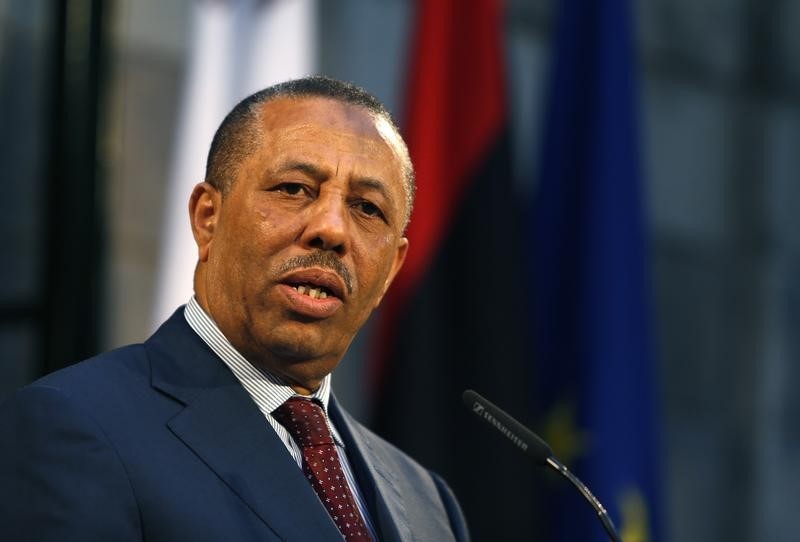TRIPOLI (Reuters) - Libya's internationally recognised government said it planned to close several embassies and reduce diplomatic staff to tackle a budget crisis due to the loss of oil revenues.
Two governments, allied to rival armed factions, are fighting for control of the country and its oil reserves, almost four years after the overthrow of Muammar Gaddafi.
The violence has cut oil output - the country's lifeline - to less than 400,000 barrels a day, a quarter of what Libya was producing before the NATO-backed uprising, at the same time as world oil prices have tumbled.
Prime Minister Abdullah al-Thinni, forced to work in the east since an armed group called Libya Dawn seized Tripoli and set up its rival cabinet, said some embassies would close and attaches would be recalled.
"There is a need to reduce spending to tackle the budget deficit as a result of lower oil prices and lower oil production," Thinni's cabinet said in a statement late on Tuesday. It did not say how many embassies would close.
Last week, the central bank said Libya had posted a budget deficit of 25.1 billion Libyan dinars (12.3 billion pounds) for 2014.
The bank, which is trying to stay out of the conflict and retain control over the allocation of oil revenues, proposed cutting diplomatic staff, education and other state allowances to tackle what it called a growing budget crisis.
It has said that Libya's foreign reserves are being drained, without giving a figure. It last estimated foreign currency reserves at $109 billion (72.1 billion pounds) at the end of June.
Cutting the budget is difficult as most Libyan adults are on the public payroll while the country of 6 million also enjoys subsidised bread, airline tickets and petrol, a legacy from Gaddafi to buy loyalty that the country's new rulers have not dared to touch.
It is not clear how Thinni's government will implement the decision as some embassies had pledged loyalty to the Tripoli-based government. The foreign ministry in Tripoli is under control of the new rulers in the capital.

A Tripoli-based rival parliament allied to Libya Dawn said this month it was discussing austerity measures.